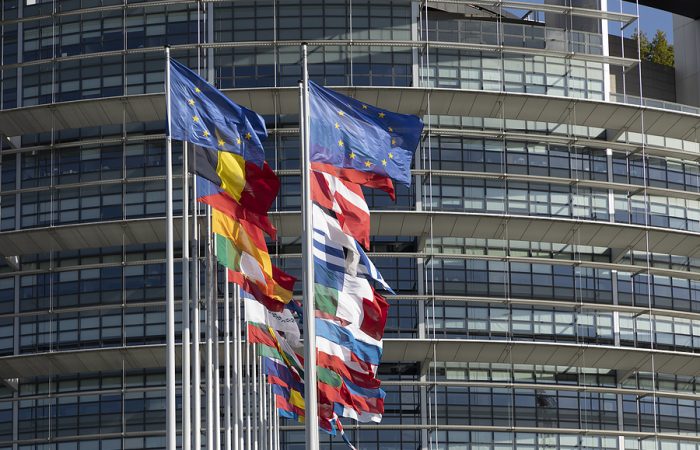Ioannis Tirkides*
2023 has been a year of turmoil, wars, and geopolitical upheaval. It has also been a year of weaker economic growth, with a few but notable exceptions, not least China, and the United States. Interest rates peaked for this part of the cycle and bond prices fell for the most part. The much heralded recession didn’t really arrive, although it looked like one in many places, not least in Germany and other parts of Europe. Equity markets trended higher for much of the year, despite rich valuations. Money moved out of bonds and gold strengthened, reflecting geopolitical uncertainties and declining confidence in governments more generally.
The omens for 2024 are not very good, as many of the processes that have begun in recent years will come to a head. So, we can expect even more uncertainty and volatility, with faster changes in fortunes. In the end, we may see a recession, probably in the second half of the year, as Europe stagnates, and China continues to rebalance its economy away from real estate and infrastructure investment.
We take a holistic approach to discussing the outlook for 2024. We discuss upcoming elections, war and geopolitics, and the underlying economic realities. We conclude that wars will be protracted, and the risk of escalation will remain high. The current exuberance in markets, driven by expectations that central banks are likely to cut interest rates soon, is premature. Geopolitical risks are not priced in and there will be surprises.
In this article, the first of a two-part series, we focus on elections, war, and geopolitics. We will discuss the economic outlook in conjunction with geopolitics in part two, which will be published separately with a week’s delay.
The upcoming elections and their significance
2024 will be a year of elections, far and wide, in countries and regions where about 40% of the world’s population lives. There will be elections in key places, in Russia in March, in the European Union for the European Parliament in June, and in the United States in November. The significance of these elections is that they come at a critical time when the world is in transition, changing in so many ways, and the changes are directional. The choices made by elected leaders, particularly in Western societies, over the next four or five years will literally define the 21st century. And the range of possible outcomes can be quite wide, from a major regional war to war with China, to the collapse of global trade, with untold consequences for all countries. Perhaps more frighteningly, we are too complacent in our assessment and understanding of risk, and therefore tend to underestimate the fragility of some of our societies in the West.
While the elections will be very different, they will tend to have many features in common. Protectionist tendencies are on the rise, with the ever-present risk of trade and investment disruptions. Subsidies to domestic industries will continue to rise. The United States and the European Union, as well as China, have introduced massive subsidy packages in recent years. In the United States, the Biden administration’s so-called Inflation Reduction Act is a massive package of subsidies and tax breaks for companies. In Europe, the European Commission has become very flexible on subsidies and state aid after Covid and especially after the outbreak of the war in Ukraine. This protectionist trend will continue into 2024 and for the foreseeable future, coexisting with a push to reduce supply chain vulnerabilities.
Elections in Europe and the US are likely to bring further surprises. In Europe, the far right is on the rise and is expected to win more seats in the European Parliament. But these forces have a different view of geopolitical risks from the mainstream, are more apprehensive of the war in Ukraine and are less ambitious on the green agenda. In the US, the political and social divisions are very deep and will become even deeper if the electorate perceives the election as unfair, if Trump is disqualified from the ballot or if the count is too close in some states.
War and geopolitics can be very disruptive to the economy and society. Relations with China are on the balance and could deteriorate significantly as Europe and the United States implement their so-called derisking policies. We tend to underestimate the extent to which the international system is intertwined, and in particular the extent to which China is part of the wealth and prosperity of the West. China is a big holder of US debt, which drives up the value of the dollar and allows domestic consumption that wouldn’t otherwise be possible. The overvalued dollar keeps imports cheap and inflation low. While globalisation has its critics, inflation in the West has been low for so long largely because of cheap Chinese goods. A war between China will change all that and should be unthinkable, but it is not!
Geopolitics and war
Two years into the war in Ukraine, the reality on the ground is very different. Russia now occupies a significant part of Ukraine’s territory. A large part of the Ukrainian population, estimated at more than ten million people, has left the country and too many of its young people are sadly casualties of the war. Yet a peace agreement to end the war remains elusive and the risk of escalation is still on the table.
The sanctions imposed on Russia are not exactly working as intended, which shows how little understanding of economic matters, the geopolitics people have. By weaponizing the dollar and seizing Russian dollar reserves, the international economic order has been upended, unfortunately to the detriment of the West. The now BRICS-plus group of countries, led by China and Russia, are seeking to divert trade between them outside the dollar system, which in the long run will undermine the dollar’s position as the global reserve currency. As a result, the sustainability of the debt structure in the West, much of which is held internationally, is now more questionable. A sovereign debt crisis could slowly unfold if inflation returns, as it may, and interest rates stay higher for longer.
The war in Gaza
The war in Gaza is very complex in terms of what it entails and how far it can escalate. The impossibility of a one-state solution and the rejection of a two-state solution by Israel and Hamas do not leave many options on the table. Israel wants to eradicate Hamas and then install a civilian government in Gaza under its security control. This will undoubtedly prove extremely difficult. If the Palestinian Authority in the West Bank could also govern Gaza, that would be ideal for Israel, but that is unlikely to happen. So, Israel will have to reoccupy the Strip and take responsibility for its reconstruction and civilian administration.
Israel faces threats on several fronts: from Hamas in Gaza, from Hezbollah to its north, and now from the Houthis in Yemen, who are attacking merchant ships in the Red Sea and blocking Europe’s best supply route from Asia. But the real threat to Israel comes from Iran, a much larger country with regional ambitions and significant military capabilities.
But even if Iran’s geography and terrain make it unconquerable by conventional means, Israel, with the help of the United States, can still strike pre-emptively. For Israel, the threat it faces is existential. To be bogged down and consumed in wars of attrition, fighting Hamas and Hezbollah, is not a position to be envied from a strategic point of view. Israel is becoming exhausted while its greater enemy, Iran, is growing stronger. Israel may therefore be tempted to launch a pre-emptive strike, which would only escalate the war to a regional level.
Conclusion
A war between Israel and Iran may never happen, but the likelihood of it is not negligible. Too many parties, nation states and Islamic groups, want it to happen. If the war in the Middle East does escalate to a regional level, the impact on economies and markets will be enormous. But none of this is priced in. Markets are trading almost perfectly, and valuations are in many cases too expensive. The world is at the start of a difficult transition, and it will get bumpier from here.
We will discuss the economic outlook separately in a forthcoming article next week.
*Ioannis Tirkides is the Economics Research Manager at Bank of Cyprus and President of the Cyprus Economic Society. Views expressed are personal. The article is also published on the Blog of the Cyprus Economic Society (https://cypruseconomicsociety.org/blog/blog-posts/)




